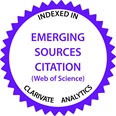Tytuł
Rebranding korporacyjny i jego znaczenie – perspektywa teoretyczna
Keywords
corporate rebranding, management theory, marketing theory, organizational theory, brand management
Słowa kluczowe
rebranding korporacyjny,teoria zarządzania,teoria marketingu,teoria organizacji,zarządzanie,marką
Abstract
Purpose: The purpose of this article is to introduce the theoretical conditions related to corporate rebranding issues – in the perspective of marketing theory, management theory and organizational theory, through literature analysis (both Polish and foreign sources – well-known Polish journals and prestigious international journals) from these three areas. Design/methodology/approach: The article is based on a literature review within the field of management and marketing theory, with account being taken of the meaning of the rebranding process in the context of the organizational theory. The article presents models of corporate rebranding and well-structured definitions. Findings: Organizations and their corporate brands that currently operate in a hyper competitive and highly turbulent environment are constantly looking for sources of competitive advantage. Brand creators are trying to give it a unique character and stand out from the others. The brand is therefore assumed to be an entity that directly reaches the hearts and minds of consumers. However, how to maintain this emotion associated with a given brand, how to permanently reach the hearts of consumers who change their tastes and penchants so quickly? This change in the environment and consumer trends often forces evolutions in the entire marketing strategy of the organization as well as in the strategy regarding the brand and/or its architecture. These changes can be both slow and rapid, involving many or just one or more selected elements related to branding (evolutionary and revolutionary rebranding). Research limitations/implications: There are still few publications in the literature describing and explaining the effects of rebranding strategies carried out in various ways, both in the marketing context as well as in the psychological (consumer reactions) and sociological context (consumer trends impact). Neither does this article does explore this research area, which implies further research for authors.
Abstrakt
Cel: przedstawienie teoretycznych uwarunkowań związanych z problematyką rebrandingu przedsiębiorstw – w perspektywie teorii marketingu, teorii zarządzania i teorii organizacji, poprzez analizę literatury (studia literaturowe oparto zarówno na źródłach polskich, jak i na zagranicznych – prestiżowe czasopisma międzynarodowe) ze wskazanych trzech obszarów. Metodologia: artykuł jest oparty na przeglądzie literatury z zakresu teorii zarządzania i marketingu oraz z uwzględnieniem znaczenia procesu rebrandingu w kontekście teorii organizacji. W artykule przedstawiono modele korporacyjnego rebrandingu i ustrukturyzowane w formie tabeli definicje. Wyniki: organizacje i ich marki korporacyjne, które obecnie działają w hiperkonkurencyjnym i wysoce burzliwym środowisku, nieustannie poszukują źródeł przewagi konkurencyjnej. Twórcy marki starają się nadać jej niepowtarzalny charakter i wyróżnić się na tle innych. Z założenia marka jest więc bytem, który trafia bezpośrednio do serc i umysłów konsumentów. Jak jednak utrzymać emocje związane z daną marką, jak na stałe trafić do serc konsumentów, którzy tak szybko zmieniają gusta i upodobania? Ta zmiana otoczenia i trendów konsumenckich wymusza często zmiany w całej strategii marketingowej organizacji, a także w strategii dotyczącej marki i/lub jej architektury. Zmiany te mogą być powolne, ale i szybkie, obejmujące wiele lub tylko jeden, lub więcej wybranych elementów związanych z brandingiem (rebranding ewolucyjny i rewolucyjny). Ograniczenia/implikacje badawcze: w literaturze wciąż jest niewiele publikacji opisujących i wyjaśniających skutki strategii rebrandingu realizowanych na różne sposoby tak w kontekście marketingowym, jak i psychologicznym (reakcje konsumenckie) i socjologicznym (wpływ trendów konsumenckich). W niniejszym artykule nie dokonano eksploracji tego obszaru badawczego, co implikuje potrzebę dalszych badań. Oryginalność/wartość: prezentowane badania stanowią nowe podejściem do tematu, a tym samym mogą wnosić oryginalny wkład w naukę o zarządzaniu marką.
Recommended Citation
Mróz-Gorgoń, B., & Haenlein, M. (2021). Corporate Rebranding and Its Meaning – Theory Perspective. Problemy Zarządzania, 19(91), 76-90. https://doi.org/10.7172/1644-9584.91.6
First Page
76
Last Page
90
Page Count
14
DOI
10.7172/1644-9584.91.6
Publisher
University of Warsaw







